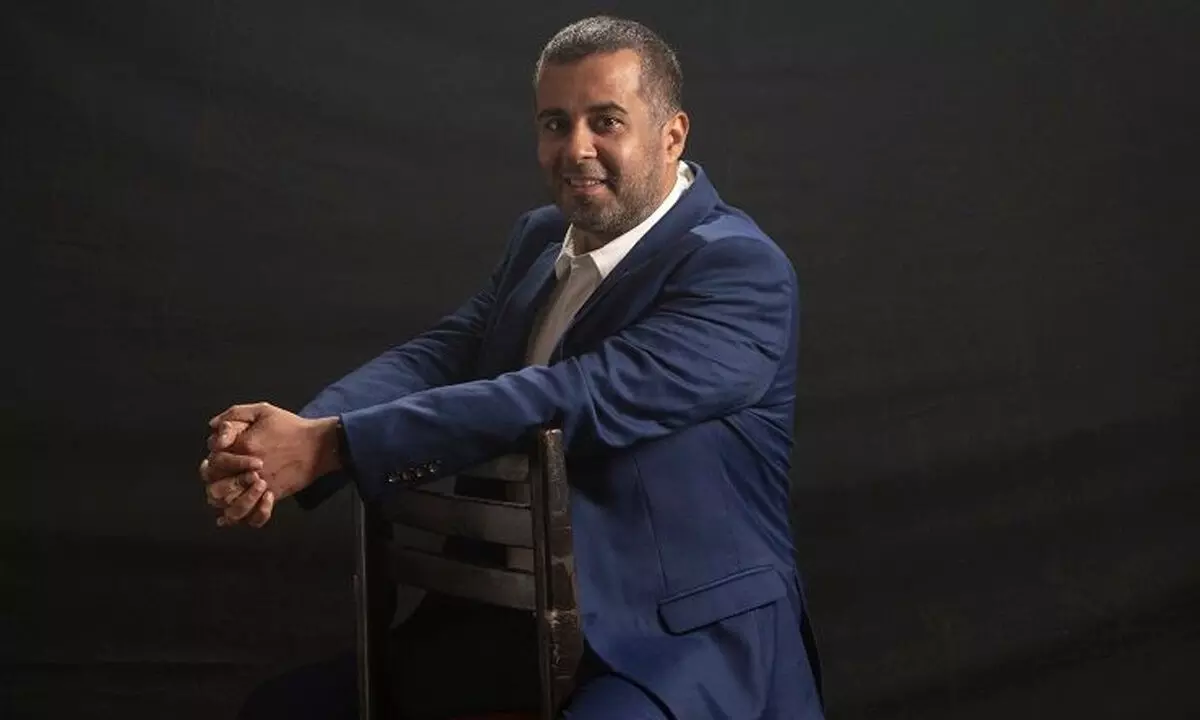Chetan Bhagat opens up on foray into audio drama and how to ‘unlove’

Looking back at his childhood, Chetan Bhagat remembers the time when the radio was the primary source of entertainment
Looking back at his childhood, Chetan Bhagat remembers the time when the radio was the primary source of entertainment. He recounts the sense of anticipation with which people awaited simple yet captivating audio dramas that held their listeners spellbound.
Modern audio dramas, according to the best-selling author, have undergone a remarkable transformation, benefiting from advances in music production technology and heightened creative efforts. He contends that productions today are exponentially richer in content compared to audio dramas of the past.
Bhagat, who recently launched an audio drama adaptation of his acclaimed book 'The Girl in Room 105' on Audible, told IANS that the forthcoming rendition of the novel isn't just a typical audiobook with a single narrator. Rather, it resembles a cinematic experience without visuals.
Bhagat explained the intricacies of producing the audio drama adaptation and the future of the audio drama business. Excerpts from the interview:
Q. What inspired the decision to adapt 'The Girl in Room 105' into an audio drama format?
I try to always stay connected to the youth of India. I think the young are continually evolving. They have different ways in which they consume their stories. Human beings have always consumed and liked stories, but the medium has changed. I want to be in the most modern medium possible and audio dramas are the future.
Audio dramas have wonderful spaces where you can listen to them anytime and anywhere with a lot of flexibility. You can listen to them while folding your clothes or taking a walk and at the same time they give you almost a movie-like experience.
I wanted to be in this space. I do not want to limit myself to being a writer, but to move on to movies, television, newspapers and motivational talks on stage.
Audio books is another fascinating area that is coming up. I wanted to be the early ones doing this, so I grabbed the chance Audible gave me.
Q. How do you assess the effectiveness of conveying messages through reading versus listening?
I always tell people to read and reading allows for a lot of absorption, but next to that, or almost the same as that, is listening to an audio format. Whether it is a podcast, audiobook or an audio drama, because that also allows you to absorb content better.
Sometimes what happens with videos is that while you get absorbed in watching, it doesn't retain very well.
For example, you may have watched half an hour of Instagram reels today, but do you remember any of them? You probably don't! But you'll remember a good speech or good audio instructions; you'll also remember if you read something. Reading as well as audio are two excellent ways to learn things and that’s how, if you have noticed, we are taught. We are taught to read books and listen to lectures. These are the two ways how maximum learning and absorption of information happens and it's a fantastic medium for that.
Q. What trends do you think are shaping the audiobook industry? How are authors like you adapting to it?
I realised quickly that I'm not in a paper business or the ink business, I am in the storytelling business. The more new ways and new technologies enable the telling of these stories, the more we need to try and become a part of them. I think this is a very important part for writers who share their ideas with the world and this is an excellent way to do so.
Q. Can you walk us through the production process of the audio adaption of 'The Girl in Room 105'? What role does Chetan Bhagat play in it?
The book itself has a small cameo if you can see by Chetan Bhagat, although it is a work of fiction. I often do this cameo situation where the hero of the story or the protagonist needs the author and the book is written to enable that to happen.
So, I played myself, I did a little bit of that, but otherwise, there is a whole cast here. This is not just an audiobook that one person narrates. It is pretty much the same process as making a movie. The only difference is that there is no camera and make-up and all that because you're not seeing them.
But other than that, there's a whole casting process, there’s scripting, shooting, editing, background sound, music, everything. There’s a full team and that is why the experience is going to be very wholesome or maybe unlike anything you may have experienced before.

